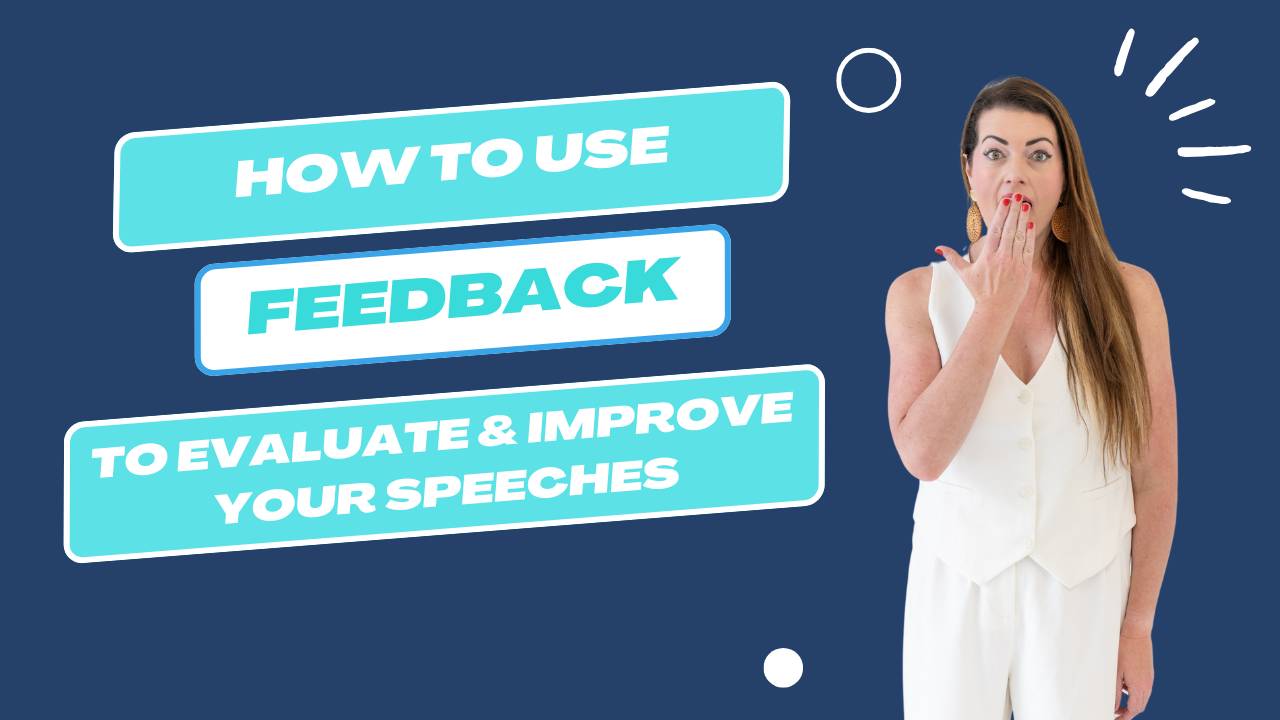How to use feedback to evaluate and improve your speeches

There’s nothing quite like the feeling you get after delivering a speech. Whether it went off without a hitch or had a few bumps along the way, the moment it ends is when real growth begins. That growth comes through evaluation.
Strong public speakers are not born with perfect skills. They develop through practice, reflection, and by learning from feedback. While feedback can sometimes be uncomfortable, it is one of the most powerful tools you have to improve your performance and connect more deeply with your audience.
Why Feedback Is So Valuable
Let’s be honest. It is not always easy to hear what did not go well. But when you shift your mindset and view feedback as a learning opportunity instead of criticism, it becomes much easier to grow.
Feedback helps you understand how your message landed. It gives you insight into what worked, what missed the mark, and how you can improve. Whether you are speaking at a business conference, a local networking event, or on a webinar, there is always something to take away from your audience’s response.
Where to Get Useful Feedback
Start with your audience. You can ask for comments through a short survey after your presentation or send a follow-up email. Keep the questions simple and focused. Ask what people found most valuable and whether there was anything they found unclear or confusing.
You can also reach out to peers, event organisers, or fellow speakers. They can give you constructive observations on things you may not notice yourself, such as your body language, pacing, or voice projection.
Recording your presentation is another great option. Watching yourself on video may feel awkward at first, but it helps you see exactly how you come across. You might catch habits you did not realise you had or notice that a certain section of your talk could have been delivered more clearly.
What to Look For
When going through feedback, pay attention to common themes. If several people mention the same issue, it is probably something worth improving.
Focus on these key areas:
- Clarity: Were your points easy to understand?
- Engagement: Did you hold the audience’s attention?
- Delivery: How was your tone, pace, and presence?
- Structure: Did your speech flow logically from start to finish?
Remember, this is not about becoming a perfect speaker. It is about identifying what works and doing more of it.
Taking Action
Reading feedback is only part of the process. The real progress happens when you apply it.
If people responded well to your storytelling, consider adding more stories in future talks. If they found the ending too abrupt, take time to refine your conclusion. Each presentation is a chance to improve and build your confidence.
Feedback is not something to fear. It is one of the best ways to grow as a speaker. The most successful presenters are not the ones who avoid mistakes, but the ones who are always willing to learn.
After your next speech, take a moment to reflect, ask for feedback, and use it to take your speaking skills to the next level.


